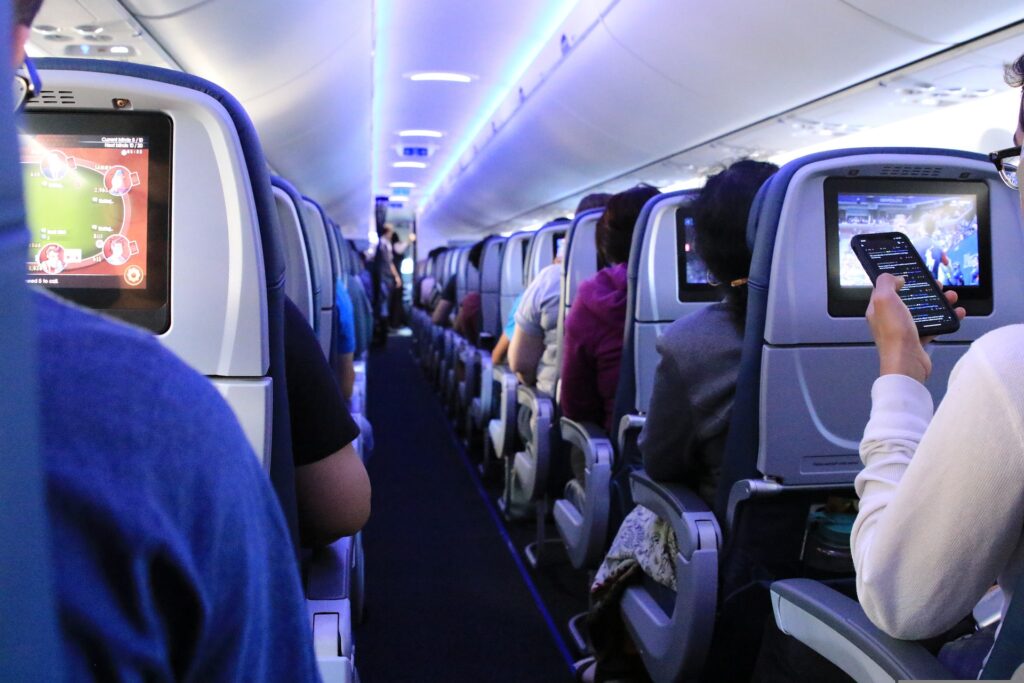How Do I Get Over My Fear Of Flying?

The extreme or immense fear of flying is also called aerophobia or aviophobia. Aerophobic people with this phobia may experience severe anxiety beforehand or during a flight. This disease may make it difficult for you to travel for business or pleasure. Speak to your healthcare practitioner if you feel that your aerophobia is harming your quality of life.
Some clinics offer remedies and treatments such as different therapies for phobias; aerophobia is no exception, like the Phobiaman fear of flying hypnotherapy.
Phobiaman clinic offers hypnotherapy to aid the phobia of flying. Being specialists allows them to work with more phobias, which has helped them identify patterns within the various phobia categories.
Most of those who have aerophobia don’t truly fear plane crashes. You can be more afraid of the intense anxiousness that comes with flying. Often, the thought of flying or the suspense of flying is more stressful than actually taking the flight.
Phobias often show physical symptoms. The following are symptoms of aerophobia:
Chills
Chills, by definition, are your body’s action that uses chills to increase its internal warmth. Chills can be caused by cold weather, viruses, infections, and other disorders. Your muscles relax and contract as you shiver. Then you’ll start to feel your body warm up from this uncontrollable activity. Fever and chills frequently coexist. A fever, however, does not always result in chills. Furthermore, chills can occur without a fever.
In this case, where aerophobia is involved, whenever you encounter a particular scenario that triggers your phobia, you may experience this.
Lightheadedness
Lightheadedness or dizziness may cause your sense of balance to be impacted, which raises your chance of falling. This may occur when you encounter one of the triggers of the phobia. Several diverse experiences can be categorized as dizziness. A disturbance of spatial awareness is dizziness, which causes and leads you to experience nausea.
Even though a dizzy spell isn’t usually a sign of something serious, it might be unsettling. More serious diseases like stroke or cardiovascular issues can be linked to dizziness. But even on its own, dizziness can be risky if it results in a fall.
Hyperhidrosis
Aerophobia may show symptoms of excessive sweating or hyperhidrosis. This symptom is also one of the most common signs of anxiety. But severe cases are that considered hyperhidrosis. Sweating hands or palms may be one of the most known signs of nervousness, but it comes in different ranges. Your body may over sweat due to hyperhidrosis, sometimes for no explicable cause. Many people never seek help since sweating can be unpleasant and unsightly.
Shaking
One symptom of aerophobia includes shaking, as well. With all the nervousness and anxiety it is associated with, shaking is probably the most common among all signs. Humans, as we are, our body’s natural reaction or response when we encounter something that triggers our anxiety and makes us nervous is shaking. Shaking can have different levels or ranges, depending on the situation and the triggers.
Palpitations
One of the symptoms of having immense fear of flying is heart palpitations. Heart palpitations or irregular heartbeats can feel like your heart is hammering, fluttering, or beating incorrectly frequently. They are typically brought on by nervousness. Heart palpitations are recurrent and typically not harmful, but if repetitive and gradually becomes severe, one may have to consult an expert immediately.
Dyspnea
Dyspnea is the other term used for shortness of breath. But, when it is used, the case is usually severe or more unnatural than average. It is a tightness in your chest that may prevent you from taking a deep breath. This symptom has various potential causes, including asthma, lung disease, or even heart complications. People with these diseases may have dyspnea challenging to handle, especially with a phobia.
Dyspepsia
Dyspepsia, on the other hand, is the state of having an upset stomach. People in an anxious state typically experience an upset stomach when in an overwhelming situation. The same as the other symptoms, an upset stomach also comes in levels. It can be severe or just quite a bit normal. When it gets severe, it is advisable to seek help from an expert.





